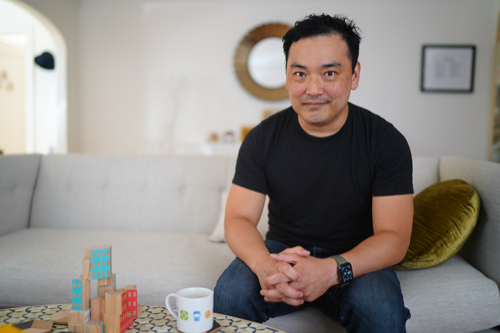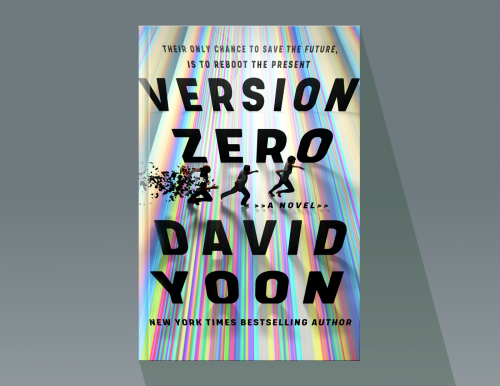On July 2nd,1999, Ricky Byrdsong was out for a jog near his home in Skokie, Illinois, with two of his young children, Sabrina and Ricky Jr. The family outing would end in tragedy. His children watched helplessly as their father was gunned down. He was the victim of a Neo-Nazi on a murderous rampage targeting Jewish, Asian and Black communities. Ten other people were left wounded. Won-Joon Yoon, a 26 year-old graduate student at the University of Indiana, would also be killed.
When you distill someone's life down to their final minutes, it does a disservice to their humanity and how they lived. Though I didn't know Won-Joon Yoon, I met Coach Byrdsong — one of few Black men's head basketball coaches in the NCAA — through my father, who is also part of this small fraternity. As head coaches in Illinois in the late 90s, their names were inevitably linked to each other. They occasionally played one another. Beyond his passion for basketball, Coach Byrdsong's love of God, and his commitment to community and family shone bright.
Coach Byrdsong was the first Black head basketball coach at Northwestern University in Evanston, Illinois. His appointment was a big deal: Northwestern is a private university in an NCAA "power conference," with a Black undergraduate population of less than 6%. I visited Northwestern's arena when my dad was an assistant coach at the University of Illinois. At 11-years old, I remember being surrounded by belligerent college students making ape noises. When I hear jangling keys at sporting events, I'm transported back to the visceral feeling of being surrounded by thousands of (white) college students, alumni and locals, shaking their car keys while smugly chanting "that's alright, that's ok, you will work for me one day."
Their ditty, directed towards a basketball court overwhelmingly composed of Black, working-class student athletes, seemed to say: you don't belong here, and you never will — a sentiment that still saturates the campus. This is the world that Neo Nazi Benjamin Smith came from. Smith was raised in Wilmette, Illinois, one of the richest and whitest suburbs in the country, less than five miles from where he killed Coach Byrdsong.
The digital boundaries that exist online, much like the neighborhood ones, carve up communities often by ethnicity, class, and subculture. In these nooks a shared story and ideology is formed that reinforces an "us against the world" mentality. It's debatable whether that's intrinsically bad — but in this filter bubble, it is hard to see our own reflection accurately, let alone others. This leaves both our digital and physical bodies vulnerable.
Matthew Hale, Smith's mentor and founder of the World Church of the Creator, was an early adopter of Internet technology. He was part of a 90s subculture of white nationalists that flocked to the web, stitching a digital hood anonymizing those who walk and work amongst us. Hale's organization linked to white power music, computer games, and developed a website "Creativity for Kids," with downloadable white separatist coloring books. They used closed chat rooms and internet forums to rile up thirst for a race war. They understood the importance of e-commerce as a vehicle for trafficking hate, and they experimented with email bombing and infiltrating chat rooms.
Beyond being tech savvy, Hale was also a lawyer, who in 1999 was being defended by the ACLU. The Illinois Bar Association had denied Hale's law license based on his incitement of racial hatred and violence against ethnic and religious groups. The ACLU has had a long run of defending white nationalists including Charlottesville "Unite the Right" organizer Jason Kessler. In 1978 they defended the organizers of a Skokie Nazi march, the same community where Coach Byrdsong was assassinated. At the time 1 in every 6 Jewish residents there was either a survivor, or directly related to a survivor of the Holocaust.
Hale's law license was rejected based on three main points:
-
That a lawyer's responsibility to uphold equal justice for all, is compromised when their sworn allegiance to one race comes before the greater good.
-
That freedom of speech did not offer protection from the consequences of speech, nor did it mean validation and accreditation for dangerous speech, which an approved law license would imply.
-
That the community standards, values and guidelines set by the law association gave the judging body the ability to define based on a set of socially accepted criteria, what goes outside the bounds of decency and morality. From their standpoint, being an avowed Klansman, given their history of lynchings and terrorism, clearly crossed that line.
But Hale felt entitled to the right to speech with impunity. And the ACLU mounted a vigorous defense of that. What rights we are owed by institutions, is a question that divides even those that are normally aligned. Though tech companies say their role is to ensure that all speech matters, free speech does not mean the right to content or user validation, amplification or freedom to incite violence. This is why groups that are deemed terrorist threats by companies don’t have the same stranglehold that white nationalists enjoy. That they remain so openly prevalent speaks more to a tacit societal acceptance of white nationalist ideologies than it does the matter of free speech.
Free speech as a red herring is used as a wedge to politicize universal rights conversations, falsely brand common sense content moderation policies as "anti-" speech, freedom, and liberties. It's an argument that's routinely manipulated to shield corporations that get rich off of if it bleeds it leads incentive structures but aren't willing to accept the responsibility that comes from being about that life. Moreover, it chills the ability of marginalized groups to advocate for safer spaces.
Already, indoctrination can occur organically by nature of the interest-driven algorithmic models that permeate the platforms and trap people into digitally segregated neighborhoods. I put these algorithms to the test when I started using a device to research white nationalist communities. I found that when the computer read my data profile, it fundamentally changed my user experience. "Hey you follow Mike Cernovich," Twitter would note, "try following David Duke or David Horowitz." Amazon would see I was looking up books about Lauren Southern and make sure I knew I could also buy Mein Kampf. I was bombarded with YouTube conspiracy videos about the deadly Blacks in Chicago. With no fact check mechanism in sight, my world was shaped by who the internet thought I was. Once relegated to that bubble, it was hard to get out.
Institutions like the Harvard Shorenstein Center and Data and Society document how hate groups build power online. According to the Southern Poverty Law Center, there are over 1,000 hate groups active in the United States. Beyond these known hate groups there are many loosely organized factions and countless sympathizers that are one bad quarantine day away from unleashing.
In our constricted online universe ruled by clickbait gods and monsters, it takes a special type of disassociation to say that words have the power to change the world yet there should be no boundary to them. Every morning there is another father, mother, son, daughter, or person tying up their shoes to go out for a jog, a person who could be the next Ricky Byrdsong or Ahmaud Arbery. Somewhere online at this very moment another Benjamin Smith is being groomed for violence. So many of them exist that their story may never make it out of their community filter bubble. According to 2018 data from the FBI there were 7,120 hate crime incidents reported that year. Often hate crimes — particularly against women of color and trans people — go unreported. While there's a slight dip in the total number of hate crimes overall, according to the FBI, the severity of violence is getting worse.
In 2018 Change the Terms, a coalition of 50 civil and human rights organizations, released a set of model corporate principles for dealing with hate speech. Color Of Change helped develop the framework, which encourages transparency, right to appeal, and baseline criteria for defining hate speech. The coalition is composed of either represented constituencies disproportionately targeted for hate crimes, or organizations that emphasize racial, gender, identity or religious justice in their mission. While the organizations have helped lead a culture shift in Silicon Valley, there is still much work to be done.
Matthew Hale, the pied piper of amateur racists, uses his Internet platform to lure in people like Benjamin Smith. When testifying in support of Hale's petition for a law license, Smith told the court "He's given me spiritual guidance...When I first met him, I wasn't really sure what I wanted to do with my life, what direction I was going to go." Weeks later Smith killed two people before committing suicide. From prison Hale churns out hate propaganda you can buy on Amazon.
The adage "I don't agree with what you say but I defend to the death your right to say it," is often used to prop verbal violence. But history shows that disproportionately Black and Brown bodies get sacrificed in the name of boundless white speech. For some, Matthew Hale is a cause worth theoretically dying for. Reminders of the lives he had a hand in snuffing out are often met with a digital shoulder shrug on Twitter. It's as though everyone murdered for simply existing are merely the proverbial spilt milk, splashed on the floor for the greater good of the communities left to mourn them.
Rarely have these free speech martyrs actually suffered the life and death consequences of their absolutism. I begrudge anyone their righteous cause who knows what it means to mourn yet still believe. But over Independence Day weekend in 1999, Coach Ricky Byrdsong and Won-Joon Yoon did die. The online legacy left by their assassin and his enablers would empower and inspire a killer to walk into Emanuel African American Methodist church and murder nine people, another one to massacre 11 in the Tree of Life synagogue in Pittsburgh and yet another to gun down 49 people in New Zealand in the Muslim community of Christchurch.
Each of them set in motion the real-world consequences of an online model that monetizes polarization. And all of them left behind digital breadcrumbs for the next monster. Coach Byrdsong is one of multiple stories I could share about someone I knew who was killed or assaulted because of their ethnicity, gender identity, sexuality or religion. For me, free speech can not truly be free when it operates on a sliding scale weighted against those with the most to lose, and it will never hold more intrinsic value than human lives.
Brandi Collins-Dexter is a visiting fellow at the Harvard Kennedy School’s Shorenstein Center on Media, Politics and Public Policy and a senior fellow at Color Of Change. She is currently writing a book about Black participation in democracy and the US economy, with particular focus on the role technology and information integrity play in improving or deteriorating community health.









 Philadelphia is joining New York, Chicago, Dallas, Boston, Houston, and Denver as the latest city to get free streaming of local, over-the-air TV stations from an innovative non-profit “digital translator” service.
Philadelphia is joining New York, Chicago, Dallas, Boston, Houston, and Denver as the latest city to get free streaming of local, over-the-air TV stations from an innovative non-profit “digital translator” service.